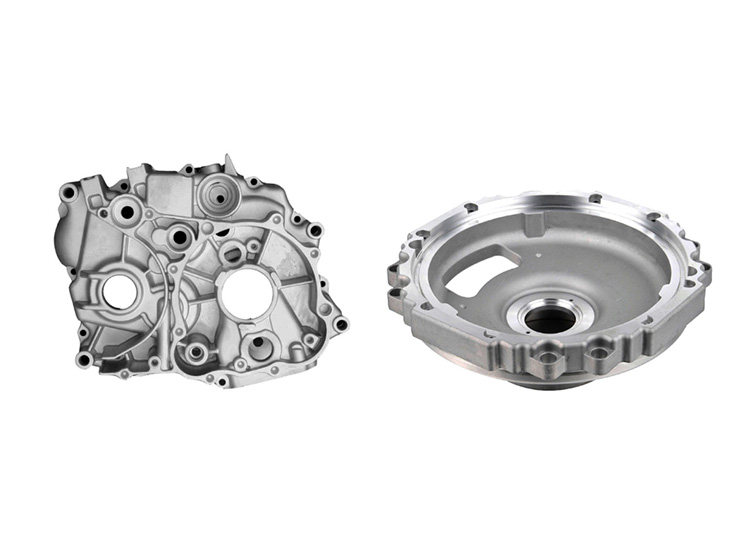Some Known Factual Statements About Stahl Specialty Company
Some Known Factual Statements About Stahl Specialty Company
Blog Article
An Unbiased View of Stahl Specialty Company
Table of ContentsStahl Specialty Company for BeginnersWhat Does Stahl Specialty Company Mean?Some Ideas on Stahl Specialty Company You Should KnowThe Single Strategy To Use For Stahl Specialty CompanyThe Only Guide for Stahl Specialty Company
Chemical Comparison of Cast Light weight aluminum Alloys Silicon promotes castability by lowering the alloy's melting temperature and boosting fluidness during spreading. In addition, silicon adds to the alloy's stamina and put on resistance, making it beneficial in applications where durability is important, such as vehicle components and engine elements.It likewise boosts the machinability of the alloy, making it less complicated to refine into ended up products. In this method, iron contributes to the total workability of aluminum alloys.
Manganese contributes to the stamina of light weight aluminum alloys and enhances workability. It is commonly made use of in wrought light weight aluminum products like sheets, extrusions, and accounts. The visibility of manganese aids in the alloy's formability and resistance to fracturing throughout manufacture processes. Magnesium is a light-weight aspect that offers strength and effect resistance to light weight aluminum alloys.
It allows the manufacturing of light-weight elements with excellent mechanical homes. Zinc boosts the castability of light weight aluminum alloys and assists control the solidification procedure during spreading. It enhances the alloy's toughness and firmness. It is typically found in applications where elaborate shapes and fine information are needed, such as attractive castings and specific automotive components.
How Stahl Specialty Company can Save You Time, Stress, and Money.
Since aluminum-silicon alloys have excellent casting residential or commercial properties, high gas buildings, straightforward processes, and outstanding deterioration resistance, aluminum-silicon alloys are most frequently made use of in the die-casting industry at home and abroad. At the same time, aluminum-silicon alloys are also reasonably very early and extensively acknowledged alloys created and utilized in die-casting. After continuous research study and improvement, a lot of the existing global mainstream aluminum-silicon alloys have actually been finalized and are nothing more than A356, A360, A380, ADC12, B390, and A413.
The main thermal conductivity, tensile stamina, yield strength, and prolongation differ. Select ideal raw products according to the performance of the target item created. Amongst the above alloys, A356 has the highest possible thermal conductivity, and A380 and ADC12 have the cheapest. The tensile limit is the opposite. A360 has the very best return stamina and the greatest elongation rate.

The 15-Second Trick For Stahl Specialty Company
In accuracy casting, 6063 is well-suited for applications where detailed geometries and top notch surface finishes are vital. Instances consist of telecommunication rooms, where the alloy's exceptional formability enables sleek and more helpful hints visually pleasing layouts while preserving architectural honesty. Similarly, in the Lights Solutions market, precision-cast 6063 components develop stylish and efficient illumination components that call for complex forms and great thermal efficiency.
(https://www.artstation.com/stahlspecialc1/profile)
It leads to a better surface area finish and better corrosion resistance in A360. Furthermore, the A360 shows exceptional prolongation, making it suitable for facility and thin-walled components. In accuracy spreading applications, A360 is appropriate for markets such as Consumer Electronics, Telecommunication, and Power Tools. aluminum foundry. Its enhanced fluidity enables complex, high-precision components like smartphone housings and communication device real estates.

In precision casting, aluminum 413 beams in the Consumer Electronic Devices and Power Equipment sectors. This alloy's superior deterioration resistance makes it an outstanding choice for exterior applications, guaranteeing resilient, sturdy products in the mentioned markets.
Our Stahl Specialty Company Ideas
The aluminum alloy you pick will considerably affect both the casting procedure and the residential or commercial properties of the final product. Since of this, you should make your choice thoroughly and take an enlightened approach.
Establishing the most suitable light weight aluminum alloy for your application will indicate considering a wide selection of characteristics. The first classification addresses alloy features that affect the production procedure.
The alloy you choose for die casting directly impacts several facets of the spreading process, like exactly how easy the alloy is to collaborate with and if it is susceptible to casting issues. Hot splitting, additionally known as solidification fracturing, is a regular die casting problem for light weight aluminum alloys that can result in inner or surface-level rips or fractures.
Unknown Facts About Stahl Specialty Company
Specific light weight aluminum alloys are much more susceptible to hot fracturing than others, and your selection ought to consider this. Another usual flaw discovered in the die casting of aluminum is die soldering, which is when the cast adheres to the die wall surfaces and makes ejection challenging. It can damage both the actors and the die, so you must try to find alloys with high anti-soldering buildings.
Corrosion resistance, which is currently a noteworthy feature of aluminum, can differ considerably from alloy to alloy and is an important characteristic to take into consideration depending upon the environmental problems your item will be subjected to. Use resistance is another property commonly sought in light weight aluminum products and can set apart some alloys.
Report this page